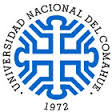En las últimas décadas el uso de los entornos virtuales de enseñanza y aprendizaje ha provocado un extenso número de transformaciones en la profesión docente que impactan en su práctica. Este trabajo tiene por objetivo hacer un análisis contextualizado de la influencia que la integración de esas tecnologías tiene en el perfil, las funciones y los roles que deben desempeñar los docentes universitarios en las propuestas virtualizadas del CURZA- UNCo. Con ese fin, se realizó un relevamiento bibliográfico de las aportaciones de distintos autores en los últimos veinte años sobre la temática. Lo obtenido en esa revisión permitió diseñar el instrumento que se utilizó como técnica de recogida de datos: la entrevista semiestructurada desde una perspectiva etnográfica. Se entrevistaron diez docentes del CURZA y posteriormente se analizaron los resultados obtenidos en esas entrevistas a la luz del marco teórico inicial. Como resultado del análisis se sostiene que, por un lado, algunos educadores aún no comprenden que el siglo XXI demanda nuevas formas de comunicación, nuevos estilos de trabajo, nuevas maneras de acceder y de producir conocimiento; por el otro, se concluye que las instituciones deben tomar decisiones de gestión que entiendan el atravesamiento de las tecnologías en profundidad, que inviten a repensar los roles docentes y, en consecuencia, estimulen las políticas de desarrollo profesional necesarias para que las TIC se configuren como una verdadera oportunidad de cambio y mejora educativa.
In the last decades, the use of virtual teaching and learning environments has caused an extensive number of transformations in the teaching profession that influence practices. This work aims to make a contextualized analysis of the influence that the integration of technologies has on the profile, functions and roles that lecturers must play in the virtualized proposals of CURZA-UNCo. To that end, we made a bibliographic survey focused on
contributions of the last twenty years of different authors on the topic. This survey enabled the design of a semi-structured interview, used as a data collection technique from an ethnographic
perspective. We interviewed ten CURZA teachers and the results obtained in these interviews were analysed in the light of the initial theoretical framework. The findings indicate that, on the one hand, some educators do not yet understand that the 21st century demands new forms of communication, new work styles, new ways of accessing and producing knowledge. On the other hand, they also suggest that educational institutions must take management decisions based on a deepcomprehension of technology crossing. They should invite teachers to rethink their roles and, consequently, they should stimulate the necessary professional development policies to make of ICT a real opportunity for change and educational improvement.


